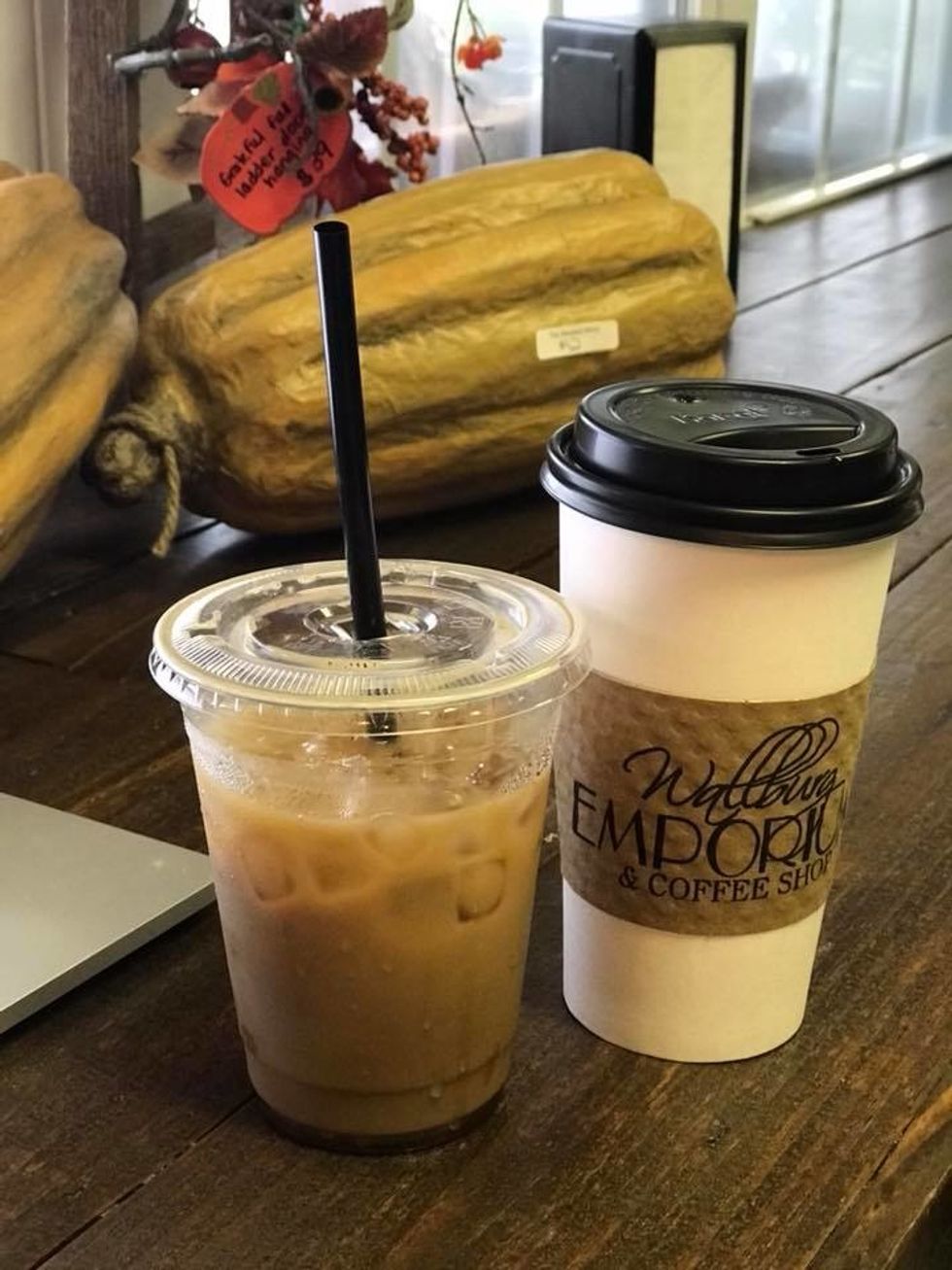I showed up on my friend Stephanie's back deck at one o'clock in the afternoon. That's a strange time to just stop by, but I'd strategically chosen it. I had a giant hydrangea in my arms to deliver and I didn't want her to know it was from me. With the kids in the backseat and the car running, I grabbed it from the trunk and ran up her back steps quietly as a sleuth, planning to just set the plant down and hurry along on my way.
Yet, as soon as that first step made the first creak, her husband opened the door. His face was puzzled and the room behind him was dark. I stammered my way through a mumbled explanation, patted the plant awkwardly and apologized for interrupting. Then, Stephanie emerged from the shadows. Her face crumbled when she saw the plant and she embraced me for what felt like years. She'd just suffered a personal loss, and this plant was my way of saying "I'm here for you. I have no idea what to say or where to even begin a conversation, but I'm thinking of you."
A few weeks later, when the dark storm clouds had somewhat parted and she was ready, we sat down for a proper chat over hot coffee. The kids played in the adjacent room and she poured her heart out to me as I refilled her mug time and again. A lifelong stutterer and generally anxious person by nature, I'm admittedly not the best conversationalist. In that moment, however, I didn't need to be. She needed someone to just sit and listen while she verbally processed about a month's worth of suppressed, crushing emotions. When she paused, I slid over to her side of the table and placed her hands in mine. "I'll be honest. I have no idea what to say to you right now," I began. "But, I'm here for you. I'll listen to you whenever you want to talk. I love you."
A few years prior, we'd both been in a situation of similar difficulty. A church member and small group friend of ours lost his life to addiction. We had to lead his daughter in our Sunday night toddler program and, as most children are, she had no shortage of questions about it and things to say. When you're speaking to an older child about these types of hard-hitting, heavy issues, there is a protocol to follow. There are steps in place to help you navigate those talks with at least some degree of grace and focus (those interested can find some great info here on how to begin that dialogue). Yet, when the child is two years old with an imagination the size of Texas, finding the words can be hard.
We'd gotten through that challenge together, primarily through diversion, but this was an entirely different beast altogether. There would be times when the grief would hit her all over again, in the middle of the day at the playground, or at the movie theater with a chick flick playing. By living through this ordeal with her, I learned two important lessons on friendship. The first is that you don't always have to know what to say, but you need to show up when you can. There is a time to allow your friends to process their emotions and work through private matters privately, but when they're ready, simply being there for them is critical. Standing in their driveway while the kids wait in the car. Talking over coffee or at the children's museum. Listening to them, sharing with them, giving advice when you can. This is balm to the soul and more helpful than almost anything else. Most of the time, it's also the only thing you can really do in a tough situation.
The other lesson I learned is that friendship means sacrifice. It means spending your only off day of the entire week picking out the perfect sympathy hydrangea in the pouring rain, while your kids jump in puddles and wreak havoc beside you. It means neglecting some of your own personal wants so you can show up with soup when they're sick, a gab session when they're down and a box of memories when they're moving away. For Stephanie and I, it often meant leaving our husbands with the kids so we could go on a long walk around our shared neighborhood, leaving around dinnertime and not returning until well after dusk. We missed bathtime and tucking our kids into bed those nights, but we gained something meaningful in the process. Turns out, the more you invest in your relationships, the richer and more fulfilling they ultimately become.
I'll never be able to take the pain away from my friend, but I can do my part to make the burden easier to bear. I'll never forget the day I was on her deck in the rain, unknowingly barging in right in the middle of her grief. She never belabored me for it, but rather thanked me profusely for doing something to show I care. Was it the right thing to do at the right moment? Probably not. Was it well-intended and sincere? Absolutely. At the crux of it all, that's what being a true friend is all about. It means thinking of the other person before yourself and making those feelings as apparent as possible, as often as possible.
- 35 Things To Do For Your Sad Friend ›
- An Open Letter To My Friend Battling Depression ›
- A Letter To My Best Friend Going Through Troubling Times ›

















